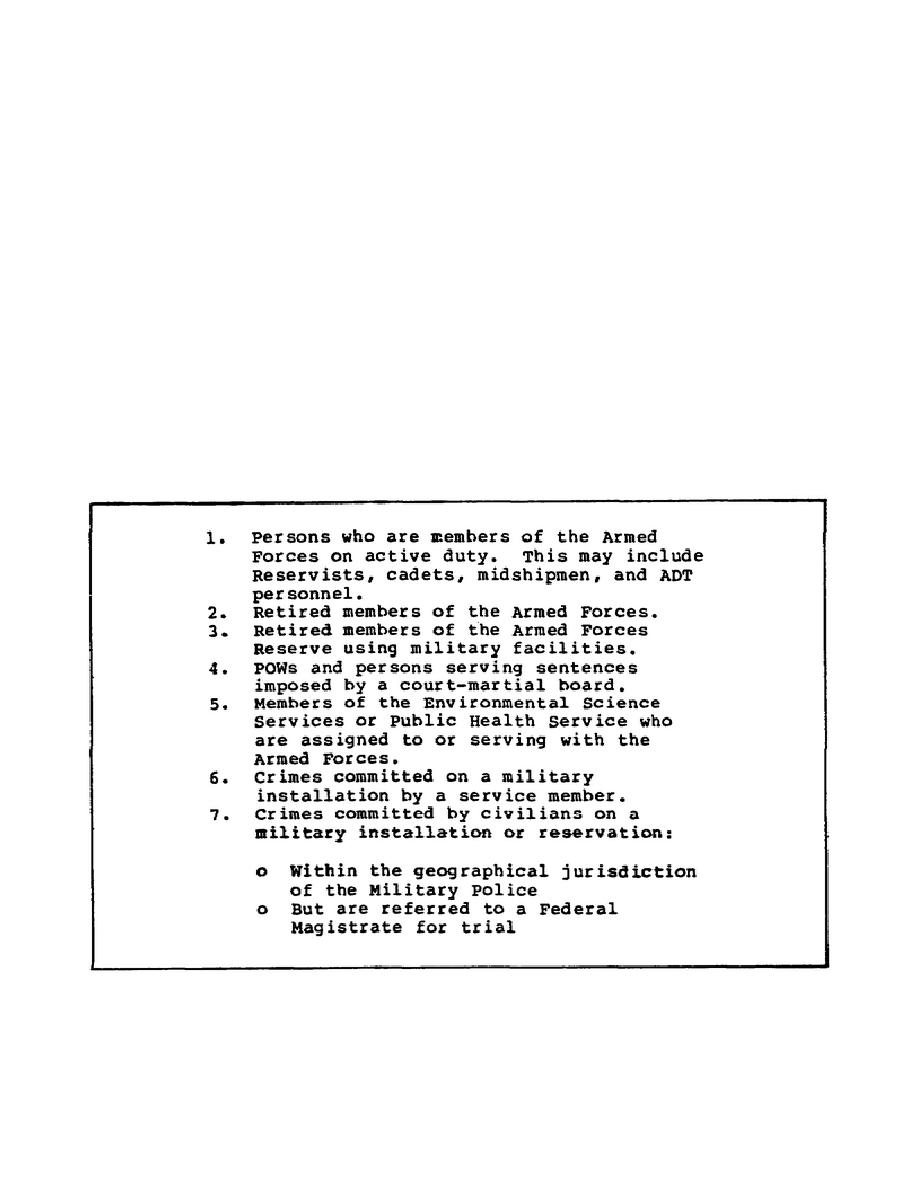
d. It is Army policy that a service member will not ordinarily be prosecuted under civil
jurisdiction and later under military jurisdiction for the same offense. Under international law, a
friendly foreign power normally has primary jurisdiction to prosecute nonmilitary offenses committed
within its borders by members of a visiting force. This power may be further defined or surrendered to
military authorities through Status of Forces Agreements (SOFA) and other treaties of agreements,
depending upon the nature and circumstances of the offense. Limitations to prosecute does not keep
commanders from taking administrative action against offenders. Where doubt exists on jurisdiction
over a particular offense, consult the SJA.
e. Military jurisdiction is the extent of, and limitations on, the right of an armed force to
exercise authority and control. It is exercised through the applications of military law, the law of war,
military government, martial law, and military orders and regulations. Military jurisdiction extends to
military personnel whether or not they are in an area under military control.
f. Military law regulates the entire military establishment of the United States. Law of war is
the segment of conventional and customary international law applicable to warfare. Military
government is the administration by which an occupying power exercises executive, legislative, and
judicial authority over occupied territory. This is by a military commander as authorized by the
President.
Figure 5-1. Provost Marshal's Jurisdiction.
5-17
MP2003



 Previous Page
Previous Page
